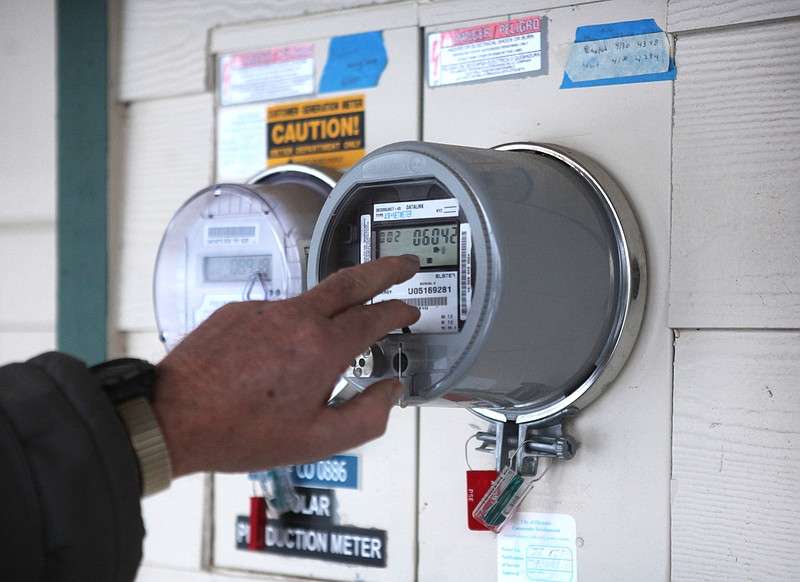With winter underway as of the solstice Tuesday, homeowners and businesses should prepare to feel an extra financial chill from their heating bills in January.
As temperatures decline in January, the price of electricity is going up due to higher fuel costs. In Chattanooga, EPB electric rates next month will be up 8.8% from last January because of a jump in the monthly fuel cost adjustment from the Tennessee Valley Authority.
TVA has not raised its base electric rates in three years and has extended credits granted to local power companies like EPB for both pandemic relief aid and for signing long-term power purchase agreements. But TVA adjusts a portion of its costs, which are then passed along to consumers by local power utilities, with its monthly fuel cost adjustment.
For a typical household using 1,295 kilowatt-hours of electricity, next month's power bill will total $135.58, or $10.97 more than a year ago. The increase is due to a higher monthly fuel cost adjustment which reflects the jump in both natural gas and coal prices compared with a year ago.
Despite a decline in natural gas prices on the spot market over most of the past month prior to this week, TVA spokesman Scott Brooks said fuel costs for TVA are still 37% higher than the average of the past three years.
"The higher fuel rate is mostly due to significantly higher commodity prices like natural gas and coal, relative to the comparative three-year time frame [which includes COVID impacts]," he said.
Most homes in the Tennessee Valley are heated by electric furnaces and heat pumps, but those heating with natural gas may see a bigger jump in heating costs this winter from what thay paid a year ago.
Chattanooga Gas, which supplies natural gas to about 69,000 customers in Hamilton and Bradley counties, projects its typical residential customer will pay about $27 more a month during the upcoming winter season than a year ago.
The United States is not feeling the fuel cost pinch as much as Europe and other parts of the world. Nonetheless, the U.S. Energy Information Administration projects that U.S. households will see their heating bills jump as much as 54% compared to last winter.
TVA President Jeff Lyash said TVA has helped moderate some of the higher fuel costs by shifting more of its production to nuclear and renewable fuels that are not subject to the variability of fossil fuel prices.
"Over 60% of our generation year-round now comes from sources other than burning of fossil fuels, and we have taken steps, including hedging some of our coal and gas purchases, to ease the impact of these price increases," Lyash said last month.
Natural gas prices around the globe declined over the past three weeks, but they rose again this week in trading on the New York Mercantile Exchange. Brooks said average fuel costs for January are similar to the levels reached a decade ago prior to the decline in natural gas prices prior to the pandemic.
"Although natural gas prices have started to trend back down, January's forecast still reflects the impact of global natural gas price increases and a higher demand for coal," Brooks said. "TVA has taken action to partially mitigate the volatility in gas prices with a diverse asset portfolio and hedging practices."
TVA predicts most residential electricity users across the Tennessee Valley will pay $5 to $10 more this winter compared to last year, depending upon the weather.
Contact Dave Flessner at dflessner@timesfreepress.com or 423-757-6340.
